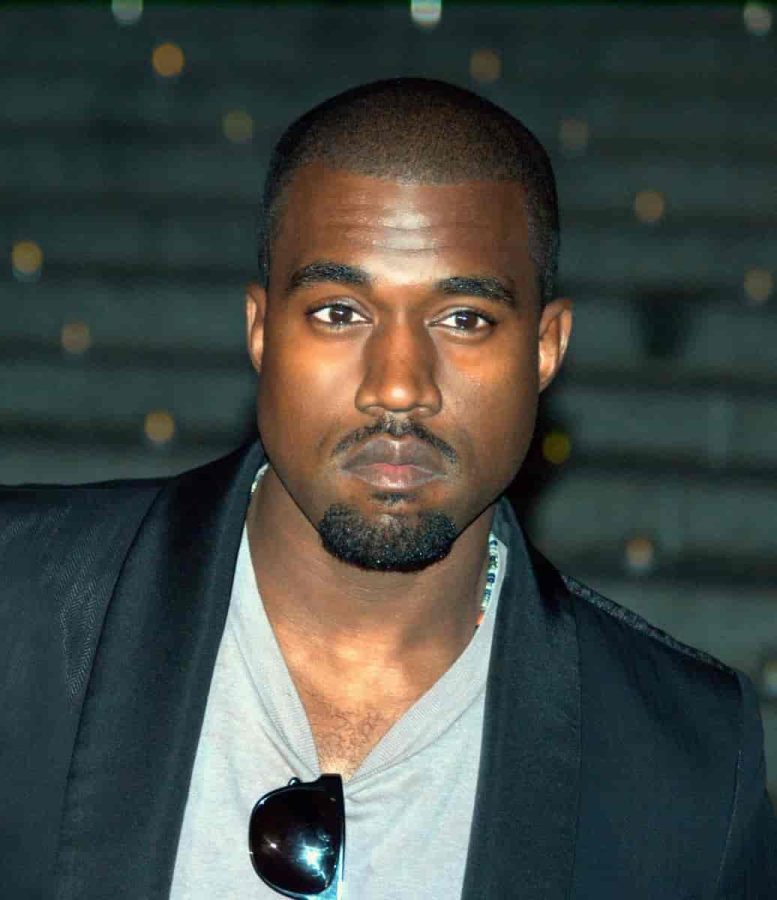Ye West: Controversy After Controversy
January 14, 2023
In his antisemitic rhetoric, yet another controversy has burdened the reputation of the problematic figure Ye West, formerly known as Kanye West. For those both in defense of Ye and against him, an underlying question pertains. Do we as consumers need to keep celebrities at an arm’s length, leaving room for disappointment?
While Ye has always had a reputation for his concerning celebrity footprint, including drama with other celebrities such as Taylor Swift and his 2020 presidential candidacy, the rapper has recently taken to a downward spiral, associating himself with extreme antisemitism. Appearing Dec 1, on the podcast, InfoWars, Ye revealed that he supported Nazis, further stating, “There’s a lot of things that I love about Hitler. A lot of things.” Alex Jones, the InfoWars host, was recently on trial after being sued by the parents of a Sandy Hook victim. Jones was found guilty of defamation, after spreading conspiracy theories on the massacre through his podcast. Despite his infamy, even he thought Ye’s statements were shocking.
A couple hours after the interview Kanye posted multiple antisemitic tweets, in one writing, “I’m going to death con 3 on JEWISH PEOPLE,” and later posting a swastika on top of the star of David, a prominent symbol of Judaism. Both tweets were later deleted, along with Ye’s twitter account being locked once again.
As the most recent of Ye’s controversies have settled in, less and less people are standing up to support him. However, some do still support Ye, with articles coming to his defense, and the cliché line “He made Graduation” still in play.
In this dilemma, it should be considered that Kanye and Ye are entirely different. In reality, the curated persona of Kanye, separate from the present Ye, is what people have attached a connection, or even relationship to. While the chance of a person meeting the celebrity they adore is slim, a persona can still be created for a celebrity from interviews, appearances, and their own niches. Even if a celebrity tightly controls their space in the public eye, a positive or negative perception of them can be created.
More often than not, if a person likes a celebrity’s talent or niche, they will associate a positive perception with them. In Ye’s place, his critically acclaimed albums (including Graduation) as Kanye West is what gained him that respect. Celebrity worship has in some ways become a part of the American society and culture, with role models of children often being sports figures or singers, as opposed to someone they know personally.
Similar to the cognitive processes of developing a relationship, the same processes can happen between a person and their idol. This phenomenon is known as a “parasocial relationship”, one that is often heavily romanticized and idealized. Now, this isn’t necessarily a bad thing, as the mind will be attracted, and therefore connected to a person they find likable. And at its core, the goal of a celebrity is to be likable, with many striving for that adoration.
The phrase “he made Graduation”, links back to that of a parasocial relationship, with the emphasis of ignoring a figure’s public remarks to have them fit into the stylized persona one created for them, the persona their relationship is tied to. To further add to this, the fact that Graduation was something released by not only Kanye but a production team, only emphasizes the separation of a celebrity’s persona to their honest character in reality. The album had the process of projection, working with a team to perfect a work he created to the audience he wanted to please.
As opposed to his album, Ye’s latest statements and tweets were most likely not discussed beforehand. His persona, or lack of one, is raw and revealing. Prior to Ye’s spiral of controversies, the media he put out was heavily curated, in order to create a reputation for himself. For Kanye fans, the man they are coming to defend is simply the persona they put on a pedestal. Now, that persona on the pedestal has been stripped to Ye, and his spiral of bigotry.
In reality, it is acceptable to feel betrayed and still hold a connection to Kanye, but to openly defend Ye is to openly defend his ideas. There is a fine line in which it is acceptable to defend something with the statement “separate the art from the artist”. If that artist’s beliefs are so outwardly spoken, they bleed into the art they create. And for Ye, the platform he’s created for himself only makes his controversies more inexcusable.
To ridicule those who felt betrayed by Ye would be overly critical, but it is still important for them, and audiences in general, to learn the barriers between the public’s perception and a celebrity’s true self.
And to those defending Ye with the shield of the Kanye persona, just remember that the shield will crumble as Ye has left it behind, and the man being so strongly defended, in reality, not in persona, is an antisemite.


